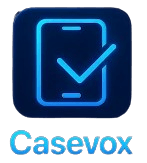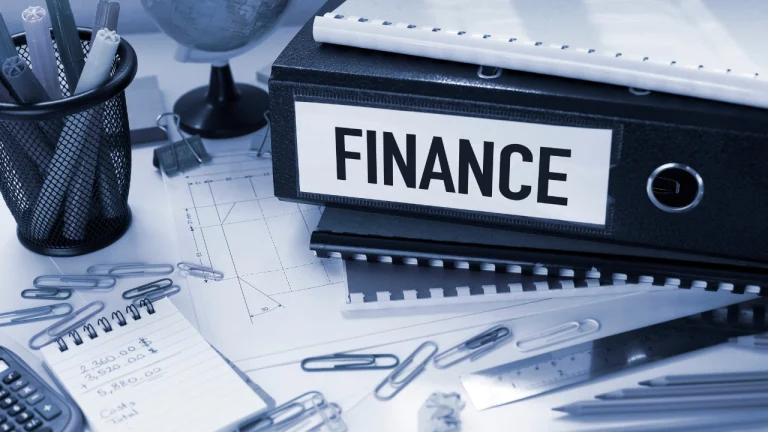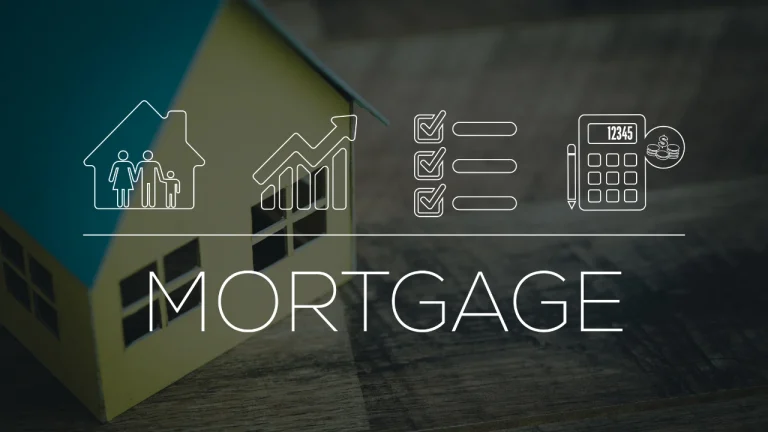Receivable Recovery Service Phone Harassment?
Is Receivable Recovery Service harassing you with constant phone calls? Do they threaten to take legal action or garnish your wages? Are they calling you at all hours or several times a day? Are they telling your family and neighbors that you owe a debt? If so what they are doing is illegal and needs to stop. You have the legal right to stop Receivable Recovery Service phone harassment. If a collection agency violates the FDCPA, you may be eligible to receive up to $1000.00 in statutory damages, along with covering your attorney fees. Legal protections under federal law, such as the FDCPA, are designed to shield consumers from unfair debt collection practices and harassment.
The Fair Debt Collection Practices Act, also known as the FDCPA, protects consumers’ rights in the context of debt collection. In other words, debt collectors must adhere to a certain set of rules when they are pursuing consumers who owe money. If a collector threatens wage garnishment, remember that improper wage garnishment is prohibited under federal law. If a collector violates the FDCPA, you can sue the collector in court. The law allows consumers who have been victims of harassment from debt collectors to get the calls to stop in addition to recover statutory damages of up to $1,000, plus attorney fees and court costs. Harassment calls can cause emotional distress and disrupt your personal life, which is why legal protections are so important.
Is Receivable Recovery Service a scam?
According to the Better Business Bureau website, Receivable Recovery Service has been in business since 1994. There have been 31 complaints closed in the last 3 years and 4 complaints closed out in the last 12 months. Read more here: Receivable Recovery Service Better Business Bureau.
What is Receivable Recovery Service?
Receivable Recovery Service is a service provider specializing in debt collection and receivable management in the Gulf South Region. Receivable Recovery Service operates as a third party collection agency, handling debts on behalf of original creditors when internal recovery efforts have been unsuccessful.
🏛️ Address: 110 Veterans Blvd Ste 445 Metairie, LA 70005
📞 Phone: (504) 837-0116
🖨️ Fax: (504) 837-0376
Common Questions:
Can Receivable Recovery Service seize my property?
Receivable Recovery Service can’t seize your property, but there are some exceptions. If the debt was tied to the property the collector may be able to repossess it. Or, if the collector has sued and obtained a judgment against you, the debt collector may be able to take certain property as permitted by the court. Improper collection efforts, such as threats of wage garnishment, lost wages, or loss of property, are regulated by federal law and overseen by agencies like the FTC.
Can Receivable Recovery Service sue me?
Yes, Receivable Recovery Service can sue you so long as the debt is within the statute of limitations. Consumers have the right to request a written notice and submit a dispute letter if they believe the debt is not valid.
Can Receivable Recovery Service report my debt to the collections bureaus?
Yes, they can report your debts to the credit bureaus. Collection letters and written notices are part of the collection process, and consumers can request more detail or clarification about the debt, including medical bills or credit card debt.
Can Receivable Recovery Service arrest me?
No, you cannot be arrested for failing to pay a civil debt.
Receivable Recovery Service Phone Harassment Examples
If Receivable Recovery Service engages in any of the following tactics, you may have a case. Harassment calls can include not only telephone calls but also text messages and other forms of communication:
- ▶️ Using profanity or abusive language
- ▶️ Calling you before 8:00 a.m. or after 9:00 p.m.
- ▶️ Calling you multiple times per week
- ▶️ Receiving multiple calls or text messages from a debt collector calling you, which may be considered harassment under federal law
- ▶️ Debt collectors contacting your family members or disclosing information to them, which is a violation of privacy
- ▶️ Talking to others about your debt
- ▶️ Calling your workplace
- ▶️ Threatening to sue you, harm you, or destroy your credit
- ▶️ Telling you or anyone else that you’ve committed a crime
- ▶️ Calling repeatedly for the wrong person
- ▶️ Failing to notify you of your right to dispute the debt
- ▶️ Trying to collect more than legally allowed
- ▶️ Sending harassment calls or text messages that are considered harassment under the FDCPA or CFPB rules
- ▶️ Ignoring your written request to stop calling or stop contacting you, which they are legally required to comply with
Known Receivable Recovery Service Collection Call Numbers
Are you receiving any harassing phone calls from any of the following numbers?
- ☎️ (800) 459-0116
- ☎️ (504) 837-0116
Receivable Recovery Service is known to use multiple phone numbers to make collection calls, and sometimes aggressive tactics such as calling from different phone numbers or spoofing caller ID. These aggressive tactics can cross into unfair practices, especially if they are used to intimidate or harass consumers. The list above is not all the phone numbers that Receivable Recovery Service uses—collection calls may come from other numbers as well. It is important to verify the phone number of the caller to ensure you are dealing with a legitimate collection agency and to protect yourself from unfair practices. If you are receiving calls from any phone number you suspect is linked to Receivable Recovery Service, contact our office right away so we can start the process to stop Receivable Recovery Service from calling you illegally. Above all, no one should live with harassment!

How Receivable Recovery Service Affects Your Credit Report
When Receivable Recovery Service or any debt collection agency becomes involved in your account, the impact on your credit report can be significant. Once a debt is turned over to a collection agency, it is typically reported to the major credit bureaus—Equifax, Experian, and TransUnion. This collection entry can lower your credit score and remain on your credit report for up to seven years, making it more difficult to qualify for loans, credit cards, or even rental housing.
It’s important to know that all debt collection agencies, including Receivable Recovery Service, are required to follow fair debt collection practices and comply with federal laws such as the Fair Debt Collection Practices Act (FDCPA). These laws are designed to protect consumers from unfair or abusive collection practices and to ensure that the information reported to credit bureaus is accurate. If you notice a collection account from Receivable Recovery Service on your credit report, it’s crucial to review the details and understand your rights under the collection practices act FDCPA and other relevant laws.
Steps to Validate a Debt with Receivable Recovery Service
If you are contacted by Receivable Recovery Service about a debt, it is your right to request proper verification before making any payments. Debt validation is a critical step to ensure you are not being targeted for a debt you do not owe or for an incorrect amount. Upon receiving the initial communication from a debt collector, you have 30 days to request written verification of the debt. This should include the name of the original creditor, the amount owed, and any relevant account details.
If Receivable Recovery Service fails to provide this information, or if you notice signs of debt collection harassment—such as repeated calls, threatening language, or making false statements—you should document these interactions. Collection harassment is prohibited under the FDCPA, and you have the right to dispute the debt and demand that the collector cease further communication until proper validation is provided. Always keep records of your correspondence and never ignore collection attempts, as this can escalate the situation.
Disputing Inaccurate Information
If you discover that Receivable Recovery Service has reported inaccurate information to the credit bureaus, you have the right to dispute these errors. Start by contacting the credit reporting agencies—Equifax, Experian, and TransUnion—directly, providing any documentation that supports your claim. You should also notify Receivable Recovery Service in writing, outlining the inaccuracies and requesting correction.
Federal laws, including the FDCPA and the Fair Credit Reporting Act (FCRA), protect your rights during this process. These laws require debt collectors and credit reporting agencies to investigate your dispute and correct any errors found. By understanding your rights and taking prompt action, you can help ensure that your credit report accurately reflects your financial history and protect yourself from the negative consequences of incorrect debt collection reporting.
Complaints Against Receivable Recovery Service
The following is a sample list of complaints filed against Receivable Recovery Service and can be found on Pacer.gov.
- 📋 8:19-cv-02716-SCB-CPT Townsend v.
- 📋 3:19-cv-00248-BAJ-EWD McAdams v.
- 📋 1:17-cv-07626 Sparrow Oloko v.
- 📋 2:17-cv-08979-JTM-DEK Alello v.
- 📋 1:16-cv-04622-CAP Williams v.

CONSUMER RIGHTS LAW FIRM PLLC
is a law firm that specializes in helping clients who are facing harassment from debt collectors in any form, including telephone communication. Rather than suffer alone, contact our office to begin the process to stop the Receivable Recovery Service harassment. Our office has been assisting consumers since 2010. We have an A+ rating with the Better Business Bureau.
If you are interested in learning more about how to safeguard yourself and prevent even more harassment from Receivable Recovery Service, call us at (877)700-5790 for immediate assistance or visit our website.
Success Stories
- 🏆 “Trust me when I say consumer rights law firm PLLC is the best law firm I’ve dealt with so far. I guarantee you won’t be disappointed, please give them a call if you ever need to, and Mathew is a great help and good personality.”
- 🏆 “Matthew was unbelievably helpful and made me feel so much better about my situation. And he helped me get rid of four of my outstanding debtors which helped relieve my load so much. I highly recommend working with this firm as they definitely have your interests first and foremost.”
- 🏆 “They worked quickly to not only get the account removed from my credit report, but also get me a settlement on top of that. Of course, this was my personal result — yours may differ. I didn’t have to pay a single dime for the service. All my questions were answered thoroughly and in a very timely manner. Do not hesitate to put your trust in this law firm.”
FAQs
Who is Receivable Recovery Services and why are they calling me?
Receivable Recovery Services (RRS) is a debt collection agency based in Metairie, Louisiana. If they are calling you, they believe you owe a past-due debt that has been assigned or sold to them for collection.
Are these calls from RRS legitimate or could they be a scam?
RRS is a legitimate and licensed debt collection agency. However, you should always request written debt verification before sharing personal or financial information to protect yourself from scams.
Is it legal for RRS to repeatedly call me about a debt?
Debt collectors must follow the Fair Debt Collection Practices Act (FDCPA), which prohibits harassment, intimidation, or excessive calling intended to annoy or abuse consumers.
What should I do if RRS calls me too frequently or harasses me?
Keep a detailed record of every call, including dates, times, and what was said. Send a cease-and-desist letter demanding they stop contacting you, and report continued harassment to the CFPB or FTC.
How do I verify whether the debt RRS claims is valid?
You can request written debt validation within 30 days of their first contact. This should include the original creditor’s name, the amount owed, and proof that RRS has the right to collect the debt.
Can RRS report this debt to credit bureaus and impact my credit score?
Yes. RRS can report delinquent accounts to credit bureaus. If the information is inaccurate or incomplete, you have the right to dispute it with the credit reporting agencies.
If RRS continues to harass me, can I sue them?
Yes. If RRS violates the FDCPA or TCPA—such as by harassing you or using unlawful robocalls—you may be entitled to statutory damages, attorney’s fees, and other compensation.
Are calls from RRS likely automated or spoofed?
Some consumers report receiving calls from changing or suspicious numbers, which may indicate automated dialing systems. Using automated calls without consent may violate federal law.
How can I make the calls from RRS stop?
You can send a written cease-and-desist letter requesting no further phone contact. If calls continue, file complaints with regulatory agencies or consult a consumer rights attorney.







